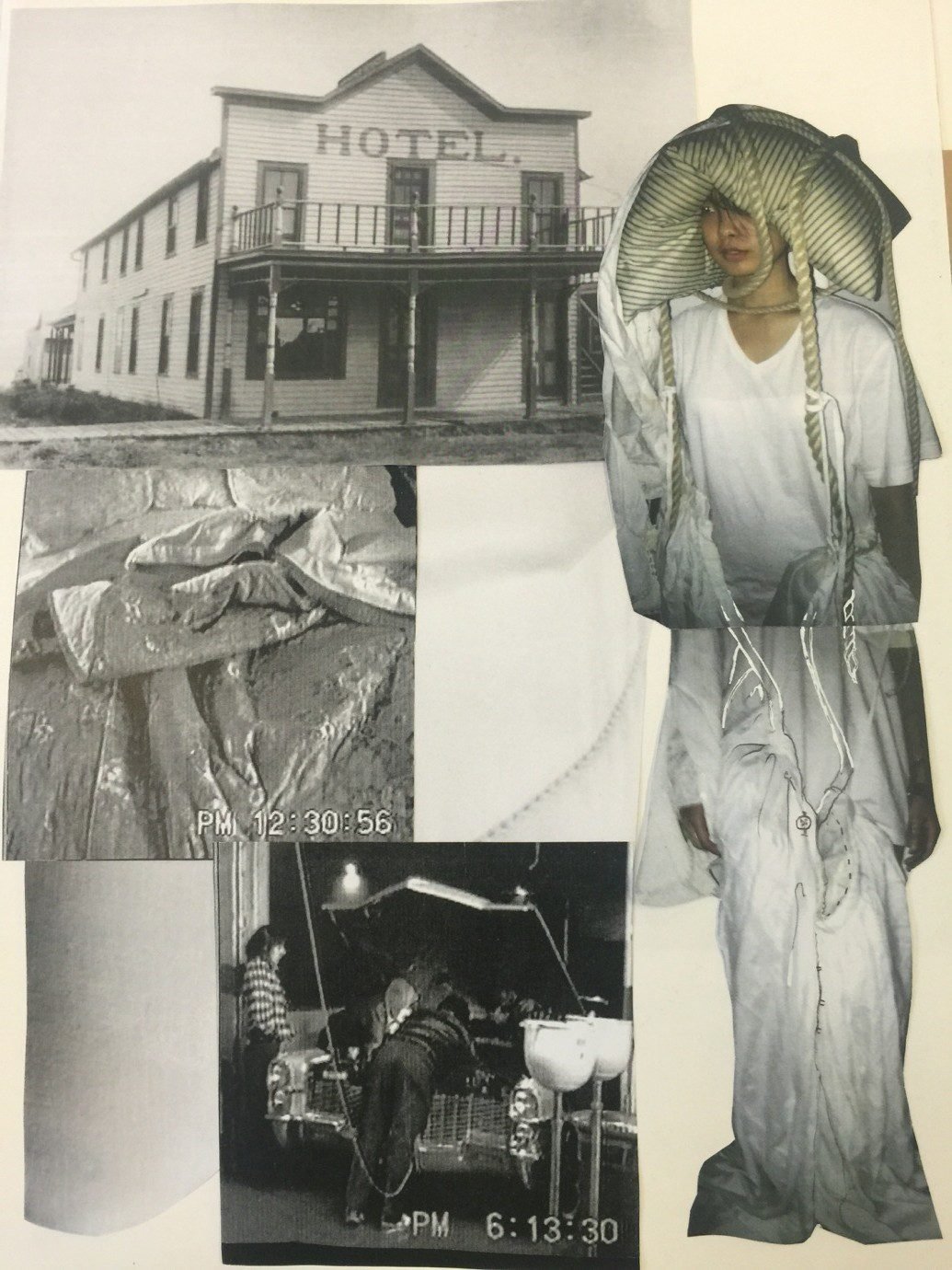Jay Juyeon Lee, South Korean designer and graduate of the BFA Fashion Design course at Parsons School of Design, remembers that the first time she was introduced to the world of fashion was through seeing the Marc Jacobs for Louis Vuitton show in 2010 on TV. “I was 10 or 11 years old at the time and I was super amazed by what I saw. I remember wishing I could be involved in the show and design something that people would be interested in seeing on the runway. So from the beginning, I wasn’t just attracted to the concept of ‘fashion’, but also to the idea of creating physical garments.”
Jay Juyeon Lee: Measurements are subjective
The South Korean designer is celebrating the physicality of the human figure.
The show sparked in Lee an obsession with Jacobs’ work and led her to researching all of his previous shows and reading about his career. “He was a huge influence on how I wanted to go about being a designer. I wanted to follow his path, so I looked into what schools he went to, what internships he has done and what companies he worked for. That’s how I decided to apply to Parsons,” she says.
For her graduate collection, Flexurment, the designer focused on the celebration of the human figure. “I always thought that the human body is one of the most delicate, sophisticated and beautiful creations in the world. I have been very interested in all of its different shapes and movements since I was a kid.” The collection is inspired by the shapes, textures and positions of human muscles, as well as body tapes used by professional athletes.
“I wanted to show that the human measurements can be flexible; my garments embrace a variety of sizes and transform based on the shape of the person that puts it on.”
Lee’s designs are created out of elastic materials, such as lycra stretch knits and compression fabrics, and developed using pattern making techniques that make the garments mould onto the body of its wearer. She wanted to convey the subjectivity of physical measurements. “I wanted to show that the human measurements can be flexible; my garments embrace a variety of sizes and transform based on the shape of the person that puts it on,” explains Lee.
While looking back on the process of creating the collection, the designer says that the biggest challenge was to figure out which finishes would work best with the technical and stretchy fabrics. “I had to use very specific machines and finishing techniques such as flatlock or cover stitch, and the lockdown that came with COVID-19 really affected my process because I had no access to the school facilities. I had to try to manipulate my process and replicate these finishings using my home machine or stitching by hand.”
“I thought that in order to succeed, I had to follow the minimal tailoring trend that was very popular at the time; that’s why I decided to do Menswear during my exchange year at Central Saint Martins. And I was literally the worst designer at tailoring! So it took me a while to realise that I have to be true to my identity and focus on the aesthetic I have loved since I was a kid.”
Looking at her time at Parsons in retrospect, Jay Juyeon Lee says that the experience has been a great opportunity to meet artists from different fields that opened up her eyes to aesthetics and forms of expression. She also admits that at one point during her education, she did struggle with her identity as a designer. “I thought that in order to succeed, I had to follow the minimal tailoring trend that was very popular at the time; that’s why I decided to do Menswear during my exchange year at Central Saint Martins. And I was literally the worst designer at tailoring! So it took me a while to realise that I have to be true to my identity and focus on the aesthetic I have loved since I was a kid.”
At the moment, Lee is working as a product development assistant at Telfar, a company which, she says, really resonates with her values and creativity. However, with the industry crisis that came with the pandemic, she admits that as a person with an international status, she’s worried about finding a job that will meet the financial requirements of the American visa policy. Lee says that her dream company to work for in the future is Nike: “They are definitely at the top when it comes to activewear and they are very corporate, so they could definitely afford sponsoring my working visa. Also, their headquarters are based in Oregon, and I lived there for a couple of years as a kid, so I think it would be a really great fit.”
“I don’t like that big companies are taking advantage of the naive young creatives. I have been noticing a lot of legacy brands copying the work of graduates and acting like it was their own idea.”
In Lee’s opinion, one of the biggest issues with the fashion industry at the moment is the lack of respect for the work of designers that are just starting out. “I don’t like that big companies are taking advantage of the naive young creatives. I have been noticing a lot of legacy brands copying the work of graduates and acting like it was their own idea. And I think that these instances of exploitation lead to a lot of doubt when it comes to sharing our portfolios with companies, which can definitely affect the development of our careers.”




































